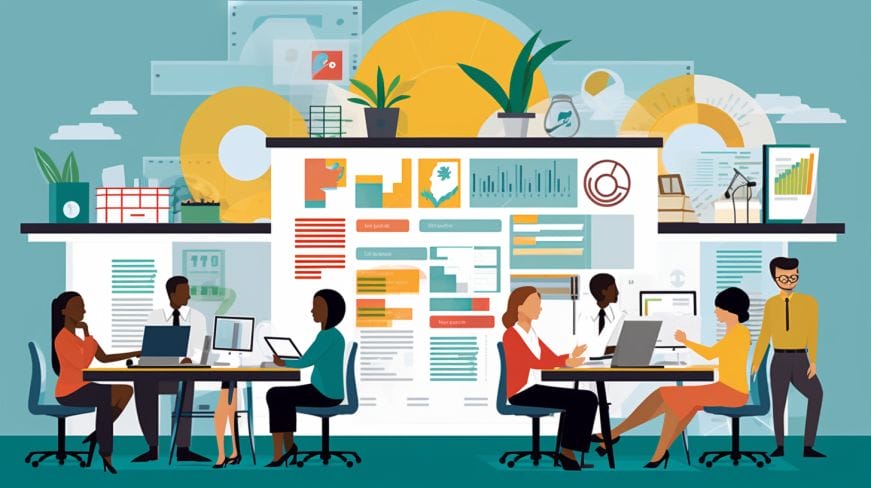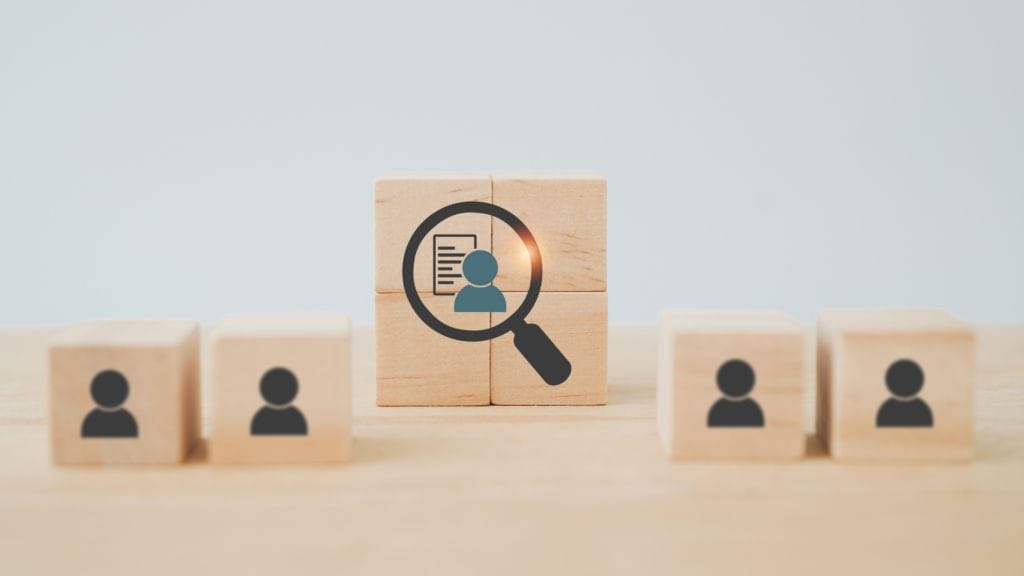Are you seeking to boost your career opportunities, amplify your job enjoyment, and elevate the standards of your professional endeavors?
If your answer is yes, you need to consider incorporating a crucial factor called personal accountability, as it serves as the cornerstone for achieving success and fulfillment in your professional journey.
Understanding the Personal Accountability Definition is pivotal in fostering a proactive mindset and taking ownership of your actions and outcomes.
It is a profound tenet that signifies embracing ownership of your actions and their outcomes, both triumphs and setbacks. It is about affirming your accountability instead of shifting blame or making excuses in an era where blame-passing is often promoted.
In this article, we delve into this concept, shedding light on its importance in the workplace, characteristics, strategies to develop it, benefits experienced by accountable individuals, and how it impacts our professional and personal growth journeys.
Ready to evolve towards personal accountability? Let’s embark on this journey!
Key Takeaways
- It is all about taking ownership of actions and their results, both desirable and undesirable.
- This concept is crucial in the workplace as it fosters trust, improves job satisfaction, and encourages teamwork.
- The key traits of personal accountability include proactivity, a solution-oriented mindset, acceptance of criticism, and effective communication.
Understanding Personal Accountability

Personal responsibility is all about owning your actions and their outcomes. It signifies standing by the consequences of your actions, pleasant or unpleasant, without blaming others when things go wrong.
Instead of concealing your errors, you accept them as learning opportunities. This trait applies to more than just mistakes. It also involves doing your best work and meeting your personal and professional goals. This practice can be executing tasks on time or ensuring your actions do not negatively impact others in your workplace.
Adopting a responsible role can foster trust with your colleagues and improve your job satisfaction. Self-accountability can significantly benefit both your professional and personal development.
When you’ve made a mistake, you’re more likely to become more accountable if you take personal responsibility. It means taking accountability for your actions and being willing to take constructive feedback. It’s easier for others to trust you when you’re accountable.
Importance of Personal Accountability in the Workplace

Self-accountability, a noteworthy asset at work, can make you stand out as a personally accountable and reliable team member.
You affirm your reliability when you own your actions, and people take notice. This dependability can result in an enhanced reputation with colleagues and potentially more opportunities to advance in your field.
Your job satisfaction, too, can scale up with personal accountability. You’ll experience self-fulfillment when you meet goals or complete tasks without external motivation. Moreover, being responsible for your actions fosters team spirit and collaborative culture in the workplace, strengthening bonds with your colleagues.
Encouraging to take personal responsibility also escalates the quality of work. This benefit is born from employees learning from their mistakes and eagerly finding ways to improve. On the other hand, a lack of accountability can tarnish your work reputation, posing an obstacle to achieving team goals. Rectifying such damage can be challenging once it has occurred.
Exploring the Traits of Personal Accountability: Understanding Key Characteristics

Successful development of self-accountability necessitates understanding some key supportive traits. These include proactivity, a solution-oriented perspective, acceptance of criticism, and effective communication.
Personal accountability takes mindful effort and involves taking responsibility for your actions. It means being accountable for your actions and receiving feedback constructively.
By fostering these traits, you can better hold yourself accountable and confidently claim ownership of your responsibilities.
Proactivity Rather Than Reactivity
Being active and forward-looking is crucial to personal development. It involves planning ahead and preemptively addressing issues before they magnify.
On being proactive, you don’t delay things worsening or wait for others to highlight problems. Time management skills play a significant role in proactivity, ensuring that you’re looking ahead and not letting external factors control your agenda.
Self-accountability is essential in this proactive approach. Accountability means taking accountability for your actions and not letting mistakes define you.
In the professional realm, being accountable for their actions is essential for employees. It’s easy to make mistakes, but what matters is the ability to learn from them and make a plan to achieve better results in the future.
Solution-Oriented Mindset
A solution-oriented perspective is pivotal for exercising personal accountability. This perspective leads you to concentrate on finding resolutions instead of dwelling on problems. So, if you make a mistake at work, you focus on finding solutions rather than despairing.
By viewing obstacles as challenges to overcome rather than mere setbacks, you carve a path for growth and learning from your mistakes. This attitude also manifests in the trust your colleagues place in you during difficult times. In the professional sphere, being a team player is crucial.
Taking responsibility for your actions is not just about completing your tasks and responsibilities. It’s about being accountable for the overall success of the company’s endeavors. It’s about letting others count on you, knowing they have someone they can trust.
In the workplace, social interactions also play a significant role. Building relationships with your colleagues fosters a collaborative environment. When people feel connected, they are more resilient when something goes wrong.
Individual accountability is not just about the tasks assigned to you; it’s about creating a culture of responsibility within the organizational framework. It’s about being held accountable in various forms and understanding that bad things happen, but you can always find a solution.
Acceptance Of Criticism
The ability to accept criticism is integral for personal accountability. Receiving feedback demonstrates your openness to input and willingness to learn from your errors.
It provides a pathway for personal growth and skill development by identifying areas for improvement and enabling necessary changes in behavior or actions.
By acknowledging criticism, you display humility and readiness to take accountability for your actions. This acceptance fosters individual responsibility, enhances job satisfaction, and paves the way for promising career prospects.
Remember, criticism is an opportunity for self-improvement and should be welcomed as part of your ongoing development journey. Don’t forget that fostering individual accountability is also crucial for the team’s success.
Effective Communication
Effective communication serves a critical role in personal accountability. By communicating your thoughts, issues, and concerns openly, clearly, and promptly, you demonstrate your commitment to owning your actions and responsibilities.
Open communication helps cultivate trust with your colleagues, fostering an environment of transparency. It aids in smooth collaboration and effectively resolves any conflicts that may arise.
Moreover, prioritizing effective communication allows for the fluent exchange of given and received feedback, facilitating personal growth and improvement. Ensuring everyone is on the same page and working towards shared goals bolsters individual accountability in your workspace.
Accountable people understand the importance of goal setting and are resilient in facing challenges. This approach not only helps save time and resources but also creates lasting results, making the team able to rely on each other to get the results.
Fostering Personal Accountability: Effective Workplace Strategies

To foster personal accountability in the workplace, it is fundamental to practice effective strategies that encourage individuals to own their actions and responsibilities.
These strategies include setting clear expectations, promoting transparency and communication, developing a development mindset, using an accountability framework, and creating an atmosphere where accountability is rewarded. This engagement will motivate employees to manifest personal accountability and forge a positive work trajectory consistently.
Additionally, it doesn’t make employees feel solely responsible for their actions but also helps build resilience resulting from your choices.
Setting Clear Expectations
Setting clear expectations in the workplace is valuable to foster individual accountability. With a clear understanding of what each individual is responsible for, team members are more inclined to take ownership of their roles. This clarity assists individuals in maintaining focus on their targets and deliverables, leading to escalated productivity and job satisfaction.
Encouraging Transparency and Communication
Encouraging transparency and communication could bolster individual accountability in the workplace. An environment wherein individuals comfortably share their thoughts and concerns fosters an atmosphere of transparency.
Subsequently, everyone develops a lucid understanding of what’s expected of them and can, therefore, accord themselves to meet those expectations. Open communication also builds trust among team members, reinforcing support and collaboration.
Developing A Growth Mindset
To develop individual accountability, cultivating a growth mindset is essential. It embodies openness to learning and adaptation to change. It could involve embracing challenges as platforms for growth, viewing failures as learning experiences, accepting feedback for skill enhancement, accepting the capability to learn and improve over time, taking initiative, and actively seeking new development opportunities.
Using an Accountability Framework
Utilizing an accountability framework bolsters individual accountability and ownership of actions. This framework provides a structured approach to staying accountable and achieving your goals.
It involves setting clear goals, creating an action plan, tracking progress, seeking feedback, reflecting and evaluating, adjusting as required, taking full ownership of actions, and acknowledging and celebrating achievements.
Making Accountability Rewarding
Making accountability rewarding can immensely impact job satisfaction and personal development. It encourages individuals to own their actions and relentlessly strive for excellence in work.
You can make accountability rewarding by setting clear expectations, providing supporting resources, recognizing and rewarding accountability, fostering a positive work environment, and providing learning opportunities.
Cultivating an Accountable Mindset: Demonstrating Personal Accountability

Exhibiting personal accountability requires comprehending your role in varying situations, practicing honesty with yourself and others, apologizing promptly when necessary, managing your time efficiently, and being open to change.
Developing a robust self-responsibility is critical for personal growth and professional success. With the proper perspective, you can own your actions, build trust, and efficiently work towards achieving your goals.
Understanding Your Role in Situations
Cultivating individual responsibility involves understanding how your actions and decisions contribute to the experiences and outcomes you encounter.
Rather than shifting blame or producing excuses, take responsibility for your role in a situation. Accept the repercussions of your choices and work on refining your actions in the future.
Being Honest With Everyone, Including Yourself
Honesty is a significant part of individual responsibility. It denotes being truthful with yourself and others about your actions, decisions, and mistakes. When you are honest, you take responsibility for your choices and the repercussions.
Apologizing Quickly When Necessary
Apologizing promptly when necessary demonstrates individual responsibility. It shows that you are aware of your actions and their impact on others and are willing to accept your faults. Swift apology highlights the importance of integrity and accountability, building trust in your relationships.
Managing Time Wisely
Effective time management is a crucial aspect of individual responsibility. It demonstrates your commitment and reliability while emphasizing fulfilling your obligations and achieving your goals in a timely manner. Poor time management can obstruct goal achievement and disrupt your work relationships.
Being Open To Change
Being receptive to change is an essential aspect of demonstrating personal responsibility. If you are open to change, you are willing to adapt and grow, even when faced with challenges or setbacks. It involves being flexible, embracing new ideas and perspectives, and taking ownership of your actions while making necessary adjustments for personal growth and improvement.
How Can Personal Accountability Help Managers in Setting Development Goals?
Personal accountability plays a crucial role in setting development goals for managers. By embracing personal accountability, managers take ownership of their own growth and development. This mindset enables them to set realistic and achievable goals that align with their professional aspirations. Moreover, personal accountability fosters a sense of responsibility, encouraging managers to actively seek opportunities for improvement and skill enhancement. By taking control of their development goals, managers pave the way for continuous growth and success.
The Benefits of Personal Accountability
Personal accountability carries numerous benefits that can positively affect your personal and professional life. Embracing responsibility for your actions and choices leads to increased productivity and efficiency. Being accountable makes you more aware of your capabilities and weaknesses, enabling you to learn from errors and prosper as an individual.
Moreover, it aids you in staying focused on your goals. It ensures effective prioritization of tasks and consistent meeting of deadlines. Overall, it instills a sense of ownership over your actions and outcomes, leading to heightened success in all areas of life.
Want more ideas on unlocking your potential? Discover actionable strategies to make a positive impact at work in ‘How to Make a Positive Impact at Work.’
Conclusion
In conclusion, personal accountability is pivotal for personal and professional growth. We can become more trustworthy and dependable by owning our actions, learning from our mistakes, and being proactive problem solvers.
Cultivating it benefits us, enhances our work relationships, and fosters a positive work environment conducive for every individual to thrive. So, let’s embrace the power of personal responsibility and make it an integral part of our lives for lasting success!
Frequently Asked Questions
What is personal accountability?
It signifies accountability for your actions in the workplace and the avoidance of excuses.
How can I develop personal accountability at work?
To develop it, aspire to take ownership of tasks, be proactive, manage your time well, and hold yourself accountable even when tasks don’t proceed as planned.
Why is it important to have a culture of accountability in the workplace?
Creating a culture of accountability enables employees to feel more responsible for their actions, boosting productivity and building trust among team members.
Can developing personal accountability help me achieve my goals?
With it, you take responsibility for your actions and proactively plan to fulfill your goals, significantly increasing the likelihood of reaching them.
How does a lack of personal accountability affect work relationships?
It can harm work relationships as coworkers may perceive you as unreliable and untrustworthy if they cannot depend on you.
Is there a way to encourage better individual accountability within a team?
Implementing tools like project management software or frameworks like RACI can foster collective responsibility and enable team members to hold each other accountable.

